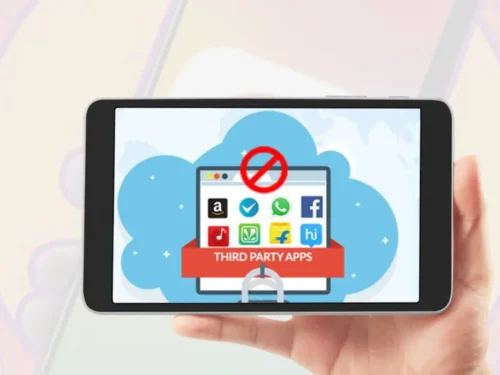How Donald Trump’s Executive Order Has Changed the Face of Social Media
Key Points:
- President Trump signed an executive order that aimed to scrap the legal protections conformed for social media.
- He is arguing that if social media companies seek protection from the fact that they cannot control what users post, then they shouldn’t intervene with those posts either.
The battle between Trump and Twitter finally came to a peak. President Trump signed an executive order to narrow legal protection to social media platforms that censors speech for ideological reasons.
Strict action will be taken against Facebook, Twitter, Google, Youtube, and other platforms that interfere in direct communication with his followers. The orders give federal regulators the right to take action against online platforms if they are censoring free speech.
What it does
His executive orders call for greater scrutiny of social media platforms by limiting or revoking Section 230 of the Communications Decency Act, a piece of a 1996 law.
Section 230 is essential and made sense when it was first introduced when the internet was new. Section 230 gives protection to the digital world. In simple terms, if users post pictures or comments that are defamatory, the operator is not responsible for it but the user and actions will be taken against the user. Without Section 230, the internet that we know now wouldn’t exist. Twitter, Airbnb, Google, Facebook, Trip advisor all depend on this protection for their business. Every internet third party leverages Section 230 to mitigate risks.
Why it matters: The move comes just days after Twitter fact-checked and labeled two of President Trump’s tweet inaccurate.
The tech giants move infuriated Trump and gave him a reason to execute his long time plan of reducing the liability of social media giants for content on their platform. Even though the idea of dismantling Section 230 is a threat to internet companies but many legal experts believe that it’s unlikely that the orders will have a practical impact on tech giants.
What changes with the order
Section 230 is an immunity to social media giants and protects them from being liable for the content billions of people post everyday.
- One of the repercussions of the order on the social media companies is stripping away the protections granted to them.
- It can be the death of an online review system that covers consumer products or services in travel, hotel, airlines, car, or others. For instance, Trip advisor boasts of 860 million reviews and could potentially be sued by U.S Federal courts for statements made by online critics if the protections are diluted.
- Social media platforms may either censor everything in the fear of getting sued that would undermine the freedom of speech as pointed out in the executive order.
- Or they might just not regulate or touch anything under the fear of getting sued, then the free speech problem will be out of control with no moderation.
- A troubling landscape for small and medium-sized media companies as they will not be able to afford staff and lawyer services leading to shut down.
- There will be no moderation over disruptive content like child exploitation over the fear of getting sued.
- Jeff Kosseff, who wrote a book about Section 230, says to Marketplace that we have no idea what the internet might look like without this regulation.
What are they saying
Facebook founder Mark Zuckerberg took a different tack and called out Twitter for its fact-checking and said they are not ‘arbiters of truth.’ the company will not get into any political fray.
Mr.Trump posted the same words on Facebook which has similar rules around voter suppression didn’t do anything to it. He said,
“We’ve been pretty clear on our policy that we think that it wouldn’t be right for us to do fact checks for politicians. I think in general, private companies probably shouldn’t be — or especially these platform companies — shouldn’t be in the position of doing that.”
However, the comments were met with derision from Twitter CEO Jack Dorsey, who replied to Zuckerberg tweet,
“This does not make us an ‘arbiter of truth. Our intention is to connect the dots of conflicting statements and show the information in dispute so people can judge for themselves. More transparency from us is critical so folks can clearly see the why behind our actions.”
Author Profile

- Neha Mehta
- Neha started her journey as a financial professional but soon realized her passion for writing and is now living her dreams as a content writer. Her goal is to enlighten the audience on various topics through her writing and in-depth research. She is geeky and friendly. When not busy writing, she is spending time with her little one or travelling.
Latest Posts
 Interview and Guest PostJuly 19, 2024Navigating Ad Tech: Equativ’s Jacqueline Chua’s Strategic Insights
Interview and Guest PostJuly 19, 2024Navigating Ad Tech: Equativ’s Jacqueline Chua’s Strategic Insights Interview and Guest PostJune 21, 2024CTV Exploration: Chandrahas Shetty, Demand Facilitation Lead, India, On Growth And Privacy
Interview and Guest PostJune 21, 2024CTV Exploration: Chandrahas Shetty, Demand Facilitation Lead, India, On Growth And Privacy Interview and Guest PostJune 14, 2024Advertising Evolution: Rasha El-Ghoussaini on Snap Inc.
Interview and Guest PostJune 14, 2024Advertising Evolution: Rasha El-Ghoussaini on Snap Inc. Interview and Guest PostJune 5, 2024Navigating Digital Waves: Shrenik Gandhi’s Journey with WRM
Interview and Guest PostJune 5, 2024Navigating Digital Waves: Shrenik Gandhi’s Journey with WRM










